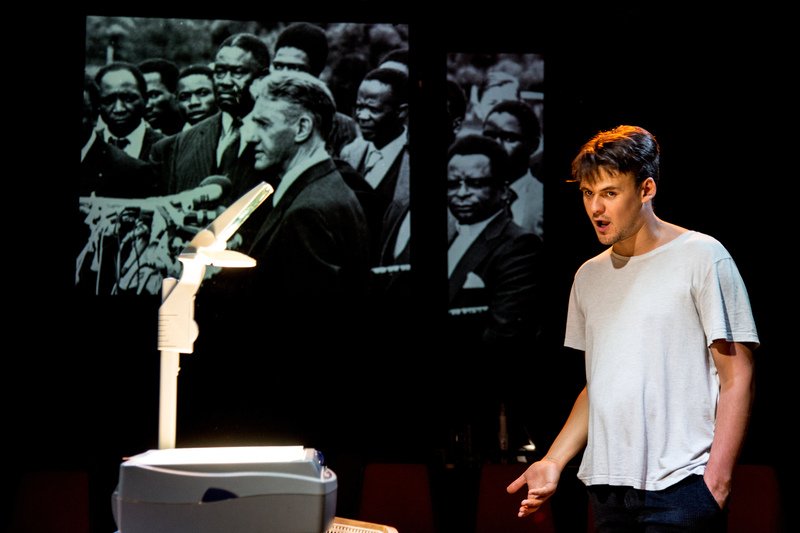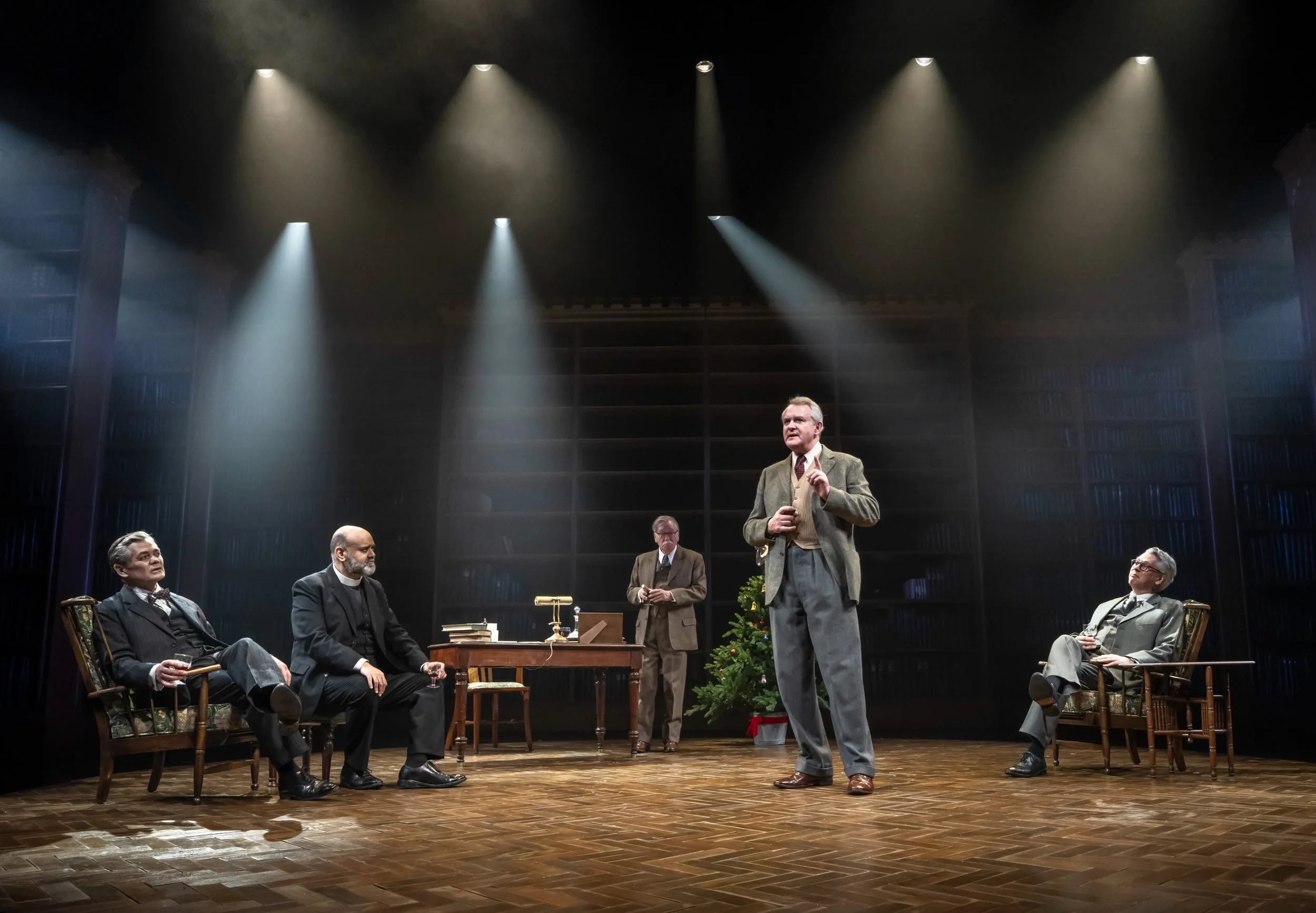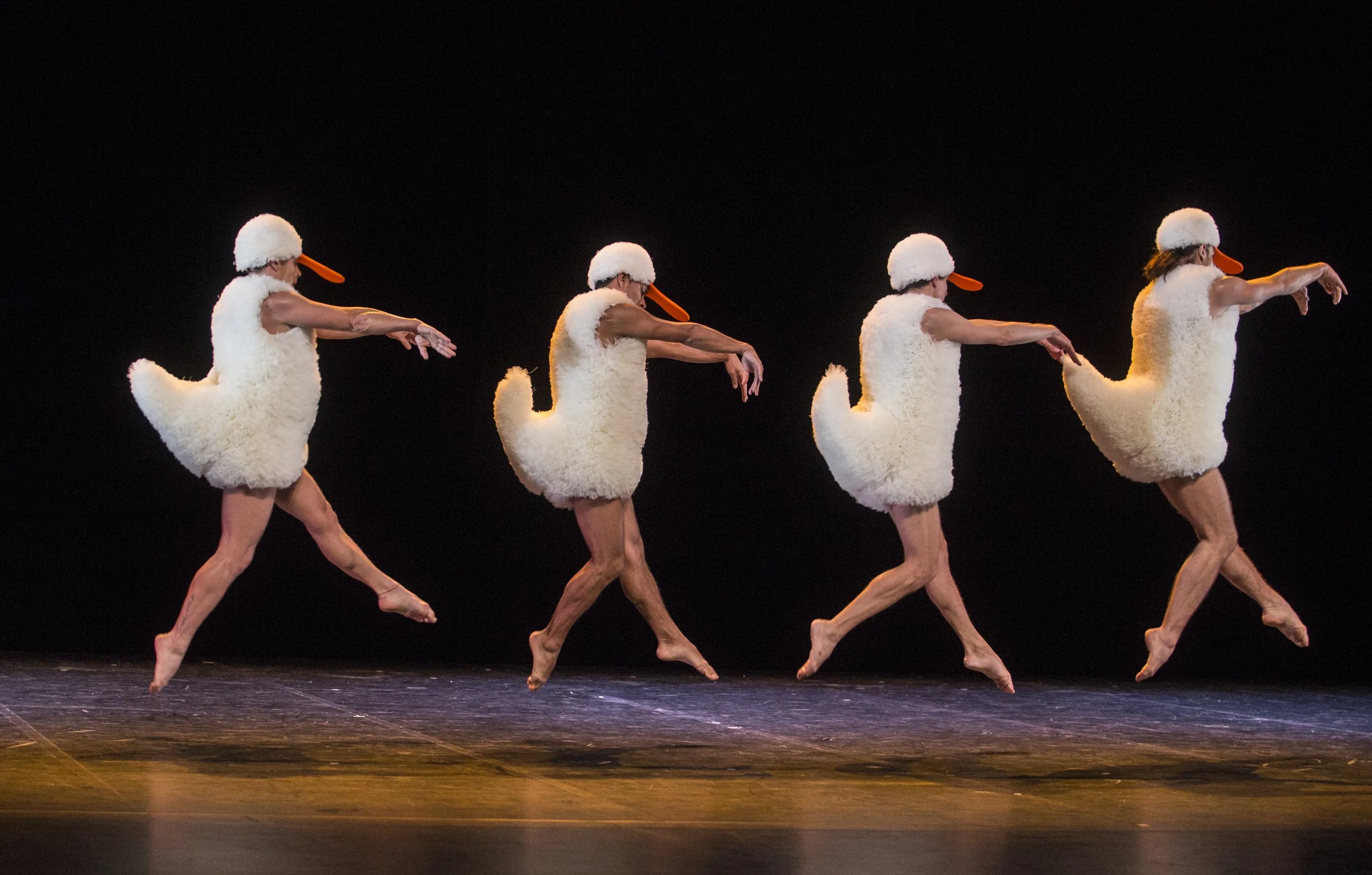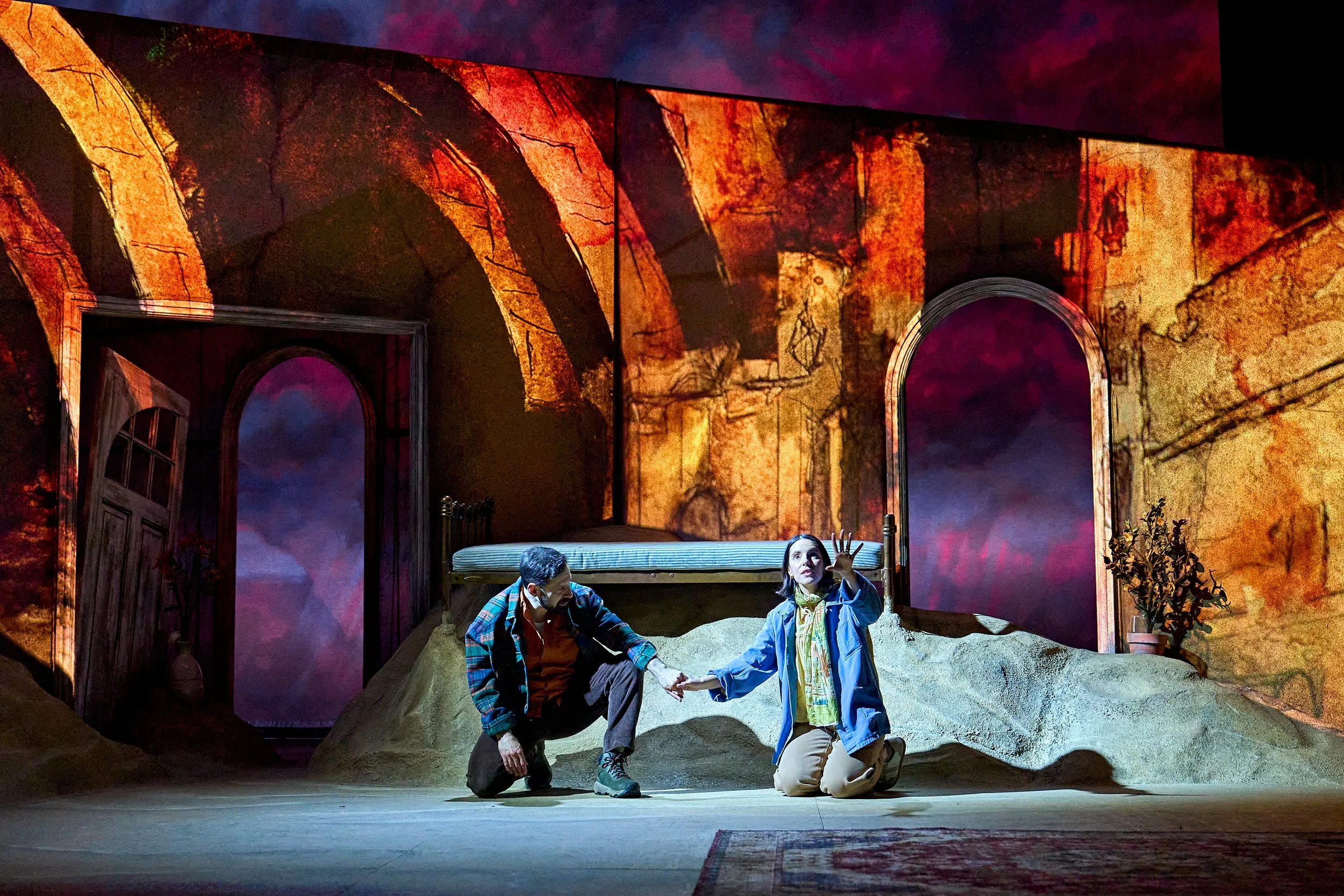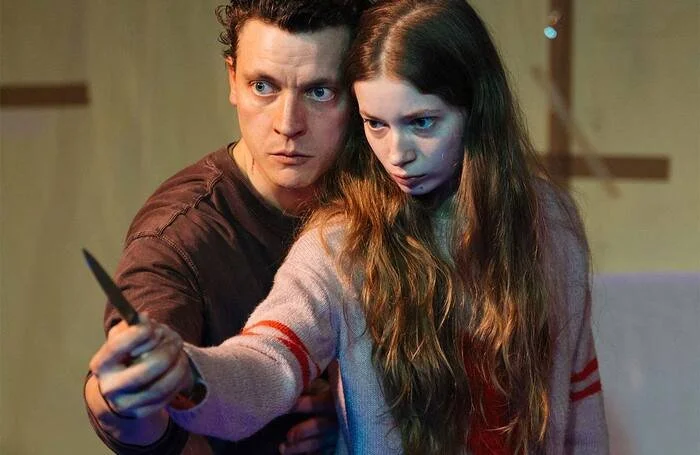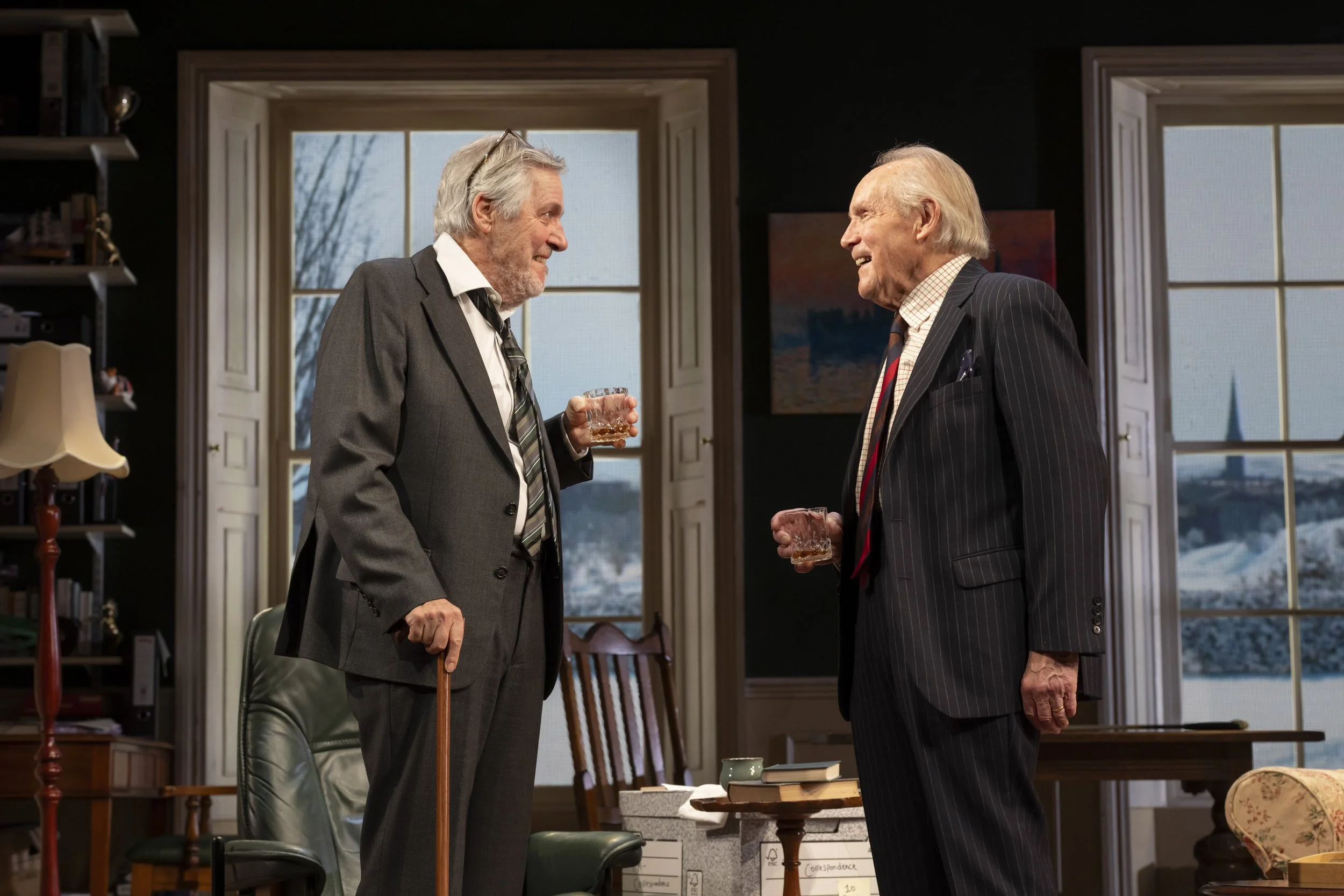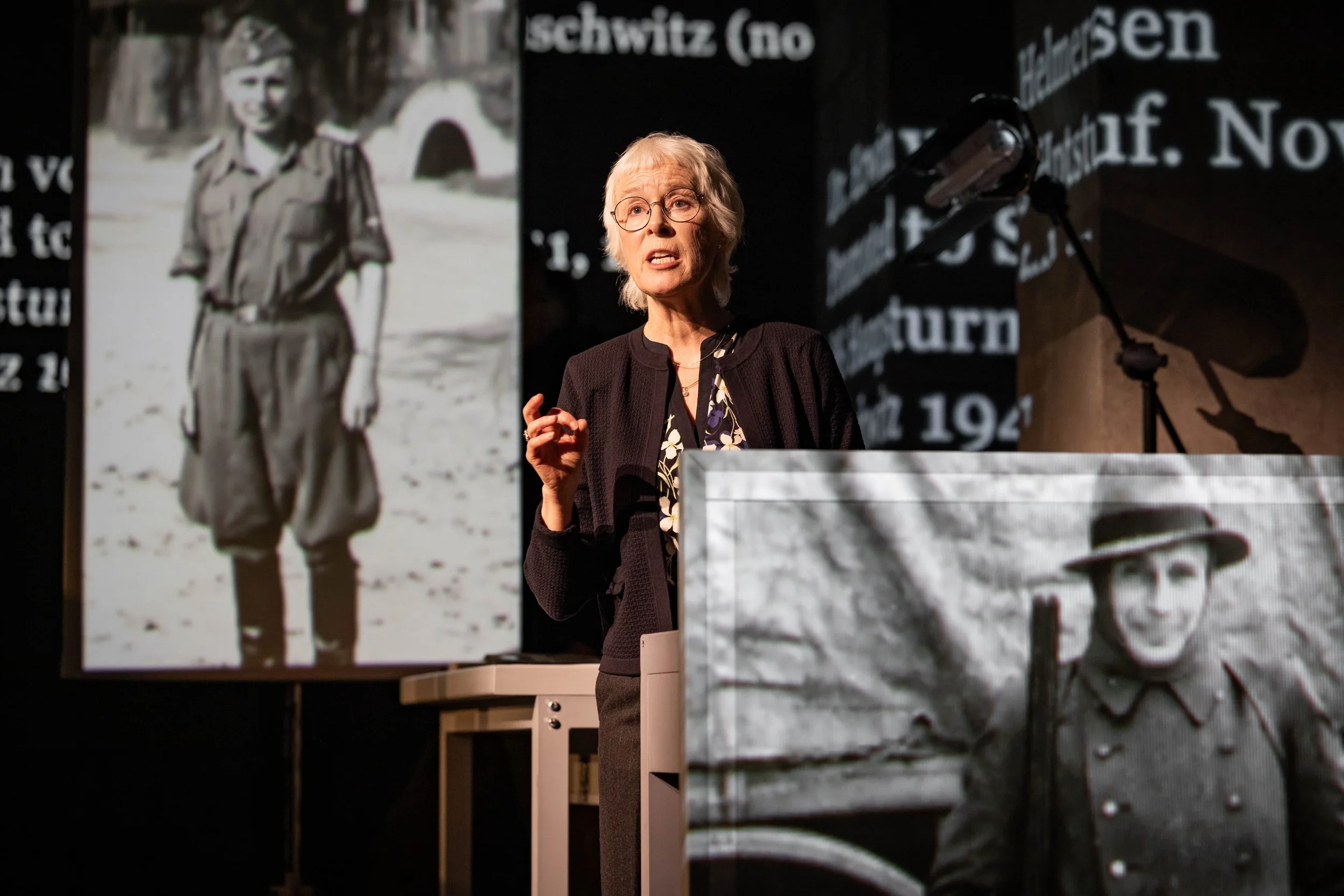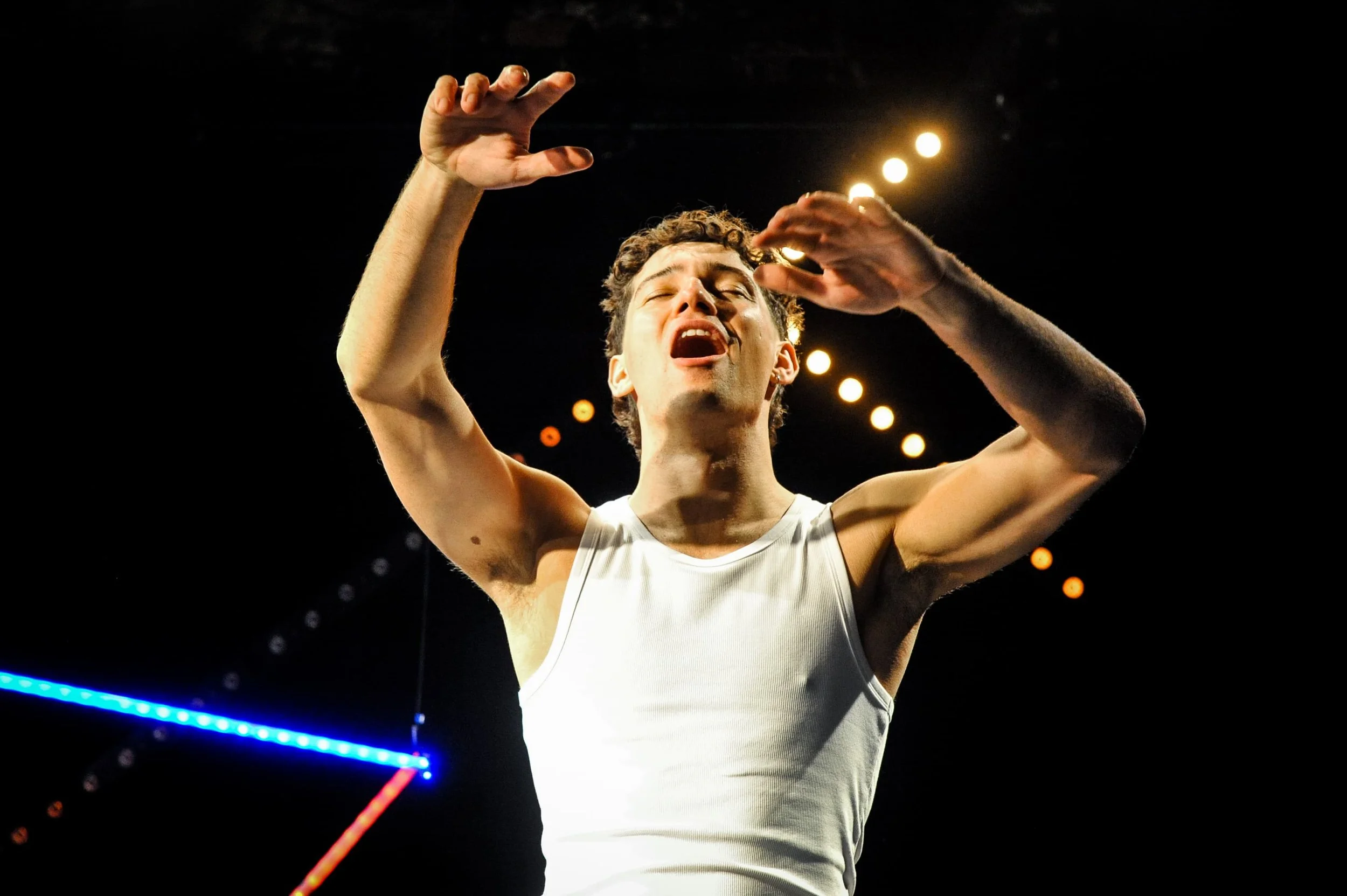Lessons on Revolution at Jermyn Street Theatre
Samuel Rees in Lessons On Revolution. Photo by Jack Sain
Written by Danai for Theatre & Tonic
Disclaimer: Gifted tickets in exchange for an honest review
Lessons on Revolution doesn’t feel like a lesson at all—and yet, it is. Gabriele Uboldi and Samuel Rees have crafted a piece that educates the audience, but without ever feeling annoyingly didactic or patronising. they now find themselves on stage, performing and guiding us on a journey that both looks back in time and expands into the present, but also in the future.
The piece takes us back to the late ’60s, when LSE students protested the school’s involvement with apartheid-era Rhodesia, with the Director of LSE linked to the area’s minority rule. The audience is transported to this seemingly distant time, yet one that feels strikingly close. Fifty years ago, young people gathered around a shared goal, driven by the desire to change the world. Though their fight didn’t lead to immediate change, Lessons on Revolution shows that the fight itself is transformative.
The writing skill of the duo is evident throughout, blending personal experience with historical facts in a way that invites the audience to identify with the story. As the LSE protest unfolds, we begin to recognise how the struggles of the past connect with the present. History isn’t a static series of events but a living, breathing force. And just like those young revolutionaries, the fight for change continues today, no matter how unlikely success may seem.
Rees’s direction complements the writing beautifully, striking a balance between the rough, gritty aesthetic of a 1960s university room and the fresh, up-to-date narrative of documentary theatre. Laurel Marks’ lighting design and Rudy Percival’s sound work together to elevate the piece, transforming it into a cohesive, well-crafted show that feels both timely and timeless.
Lessons on Revolution is an honest work that tackles politics in the least forceful way. The research, heart, and dedication behind it are palpable. That said, I did find that at times the pace felt a bit too fast, making it difficult to keep up with the facts, dates, and names. However, the strong audience interaction, visuals, and props helped counterbalance this, keeping everything grounded.
Another small concern was the lack of a deeper dive into Rees’s personal perspective. While Uboldi’s personal connection is clear—their queer identity, the footage of their grandfather, and their migration from Italy all tie into the broader historical narrative—Rees’s personal stake in the story didn’t come through as strongly. His part is equally significant, but I wished for a more fleshed-out connection to the material, something that could have added another layer to the collective experience the show explores. A more balanced, two-sided approach would have further highlighted how different lived experiences intertwine to form a shared history.
I strongly believe theatre needs more politically charged work, and while London’s theatre scene is diverse, too often it fails to dive deep into the sociopolitical issues that shape our world. Lessons on Revolution stands as a powerful exception—an example of a show that isn’t just “another performance” but a vital, collective experience. It’s a fresh, unique exploration of history, present struggles, and the need to stand together in the face of violence and privilege no matter the forms these take nowadays.
At Jermyn Street until 3 May 2025
★★★★

